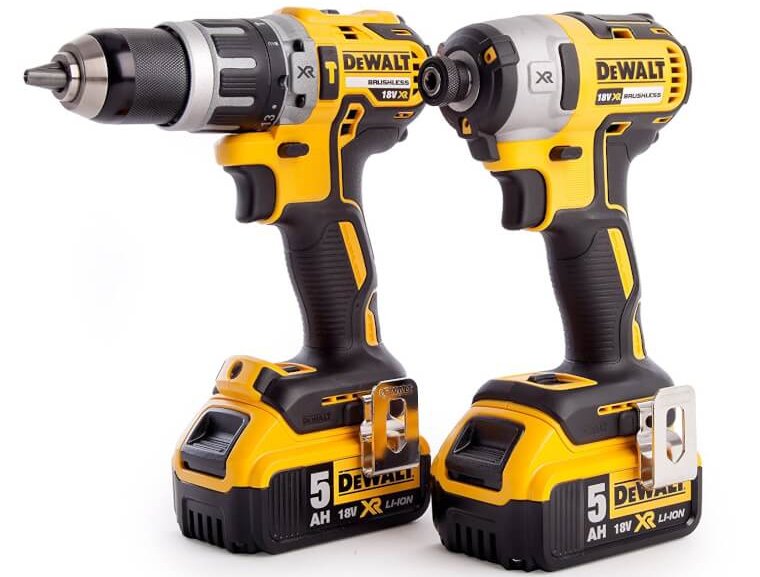

They have plenty of torque, just not the battery life for doing a lot of holes in heavier stuff.

My cordless will drill steel just fine, but heavier steel projects sometimes means going through a couple charges. I find myself rarely using the corded drill. So in my arsenal I have all I need: Two impact drivers, one cordless drill, one cordless hammer drill for small masonry jobs, (or turn the hammer off and its a regular drill) a corded drill for heavier stuff like drilling metals, and the SDS hammer drill for larger masonry projects. One is an earlier Ridgid drill/driver combo, and the other is a later Hammer drill/driver combo. I have seen hole saws up to 4" for SDS plus, but they won't perform well at all. If you need to drill for 3" or 4", you'll have to go SDS-Max.
Hammer drill vs impact driver concrete plus#
You can usually get concrete hole saws for SDS plus in sizes up to 1.75". For a home improvement tool, SDS plus should do more than you need. If you get the larger SDS-Max, those bits are usually pro-only and pretty pricey. They use SDS plus bits which are commonly available at HD, Lowes, and HF. When they do fail, they get factory parts and get repaired quickly so they can get back on the shelf for making money. They are impeccably maintained and rarely fail. Having worked at HD tool rental for a few years, you can trust their used tools. The Makita I pictured above is the same one I bought from HD a few years ago when I needed to cut a hole in concrete block for a PVC exhaust for a furnace. Hit up your local Home Depot tool rental if you need a hammer drill. You can use it as a monster drill, a hammer drill, or a mini jackhammer. Take note in this photo of the selecting thing on the side. They have special SDS chucks for bits and you can get masonry drill bits, chisels, points, etc for light jackhammering. They usually have a gear box that lets you select just drilling, hammer drilling, and just hammering. They are half way between a hammer drill and a jackhammer. RX is referring to a Rotary Hammer, which is like a hammer drill on steroids. In addition to a spinning drill bit, it whacks the tip of the bit against the masonry to chip out bits and make it easier to drill. This is almost exclusively for drilling masonry. They don't impact like a driver, they still do spinny things with torque, but they add an in/out motion to the drill bit. Hammer drills are drills that add longitudinal motion. An impact driver is a smaller, electric version of a pneumatic impact wrench. An impact driver "throws weight" instead of using pure torque like a drill. You can use a drill for that, but you are at the mercy of the torque of the motor.
Hammer drill vs impact driver concrete drivers#
Impact drivers are great for driving threaded fasteners.


 0 kommentar(er)
0 kommentar(er)
